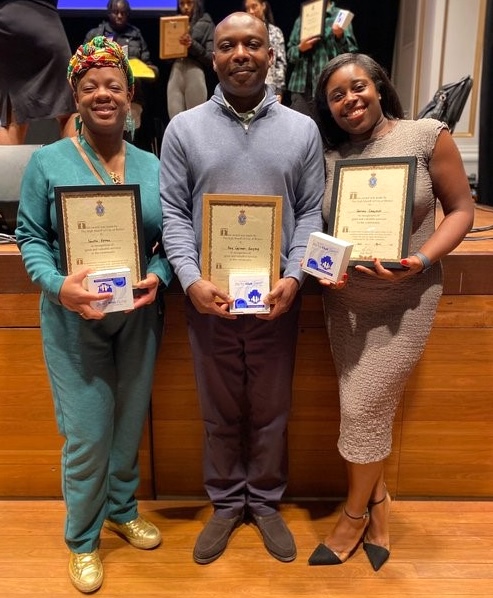As part of a project to share and highlight the importance of lessening exclusions across Bristol, Fairfield High School’s Assistant Vice Principal, Cashan Campbell, has been officially recognised in an awards ceremony at Bristol Beacon for her significant contribution to the research and educational experiences of African and Caribbean parents, and the impact this then has on their own children.
The aim of this research, led by Bristol University, is a CPD package to share with schools across the city to highlight the importance of inclusion, diversity, representation, equity and equality, in order to provide support and compassion to families, staff & communities.

Recognising that people of African and Caribbean heritage are often grouped together, but cultural dynamics and other areas mean they are different, Cashan’s strand of education research has involved interviewing individuals to learn firsthand about their experiences.
Although the project is still months from completion, results have suggested that different communication methods with African parents, for example, plus the approach and timing of these approaches, all need to be taken into account.
Cashan explains, “It’s the relatively simple things like the introduction of the pastoral team at the beginning of the year, rather than at the stage when something goes wrong, which would help build essential relationships and expectations, and even prevent a student from reaching the stage of exclusion.
“I’ve also discovered that some parents feel more at ease seeing a photo of the member of staff before they actually meet them, for example, something that we can easily put into practice when parents arrive at reception.
“In addition, secondary schools predominantly have white leadership, which unintentionally leads to limited knowledge when it comes to interactions, welcoming, transition, language and so forth. All these things retraumatises families, even if they are second or third generational, which is why this research is so imperative.”
The awards ceremony didn’t only recognise educationalists, but the efforts of students, elders, artists, creatives plus many more, who are coming together with the same aim. Schools can use the outcome of Project Inclusion – the CPD – for facilitating training and developing an understanding so that when they hold events or meetings (for example behaviour or safeguarding), cultural differences are taken into account.


